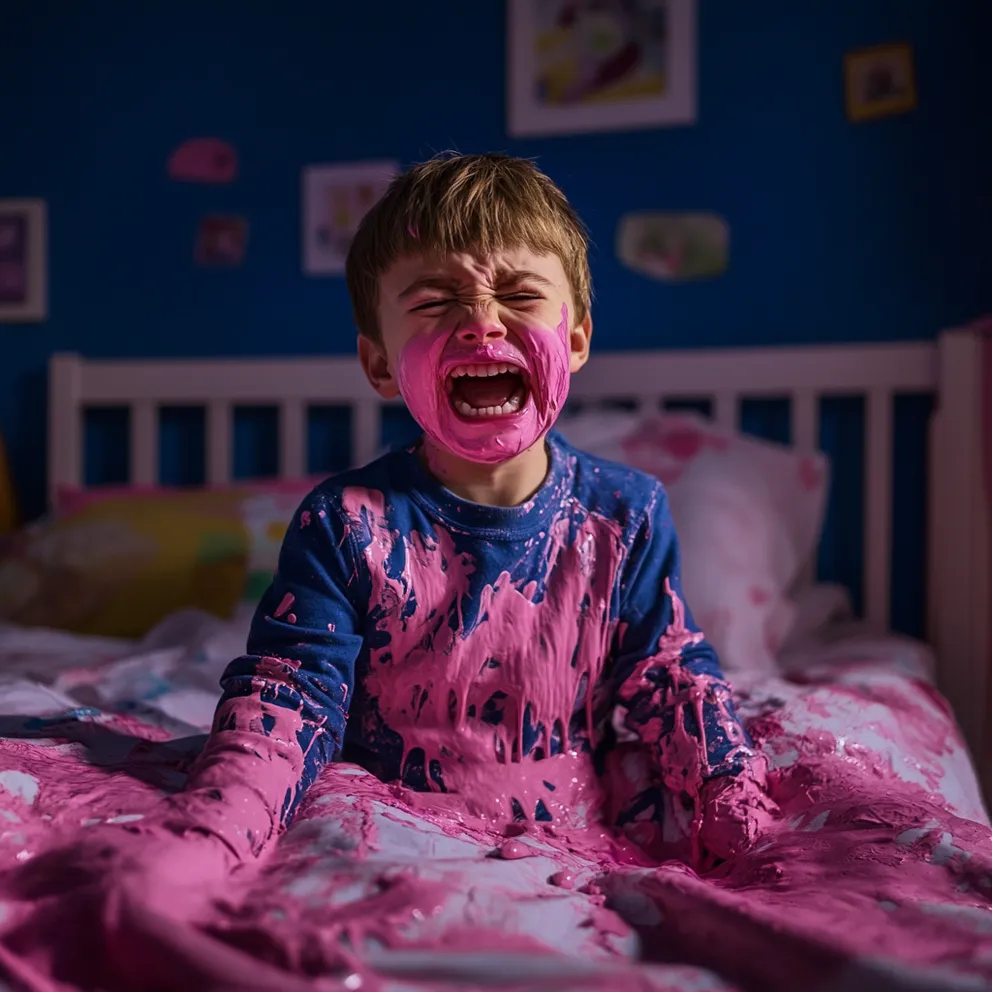A typical evening turned into a shocking discovery, exposing a deeper issue that threatened to shatter our family. My wife’s detachment had been evident, but I never suspected the root cause.

As I stepped out of the shower, our three-year-old son’s cries grew louder. I rushed to find him covered in red paint, his small frame shaking with sobs. My wife, engrossed in her iPad, seemed oblivious.

I cleaned him up, trying to remain calm. But his words cut deep: “Mommy didn’t come.” The paint-splattered room and his soaked clothes revealed a disturbing truth – my wife had neglected our child’s distress.

My anger boiled over, but as I looked at my wife, still fixated on her screen, I realized there was more to the story. Our son’s tears and paint-stained jammies masked a deeper issue.

The next day, I confided in my mother-in-law, seeking clarity. Her response stunned me: my wife was struggling with depression, lost in motherhood and lacking time for herself.

Perspective shifted, I began to see my wife’s struggles. Caring for our son alone was exhausting; I realized she had sacrificed her identity and passions. Her silence wasn’t indifference, but a desperate cry for help.

With therapy, subtle changes emerged. My wife’s voice regained its softness, and her eyes sparkled with creativity. She rediscovered painting, and our son benefited from her renewed presence.

As the months passed, our family healed. Laughter and crayons replaced tears and paint stains. We weren’t perfect, but together, we faced the darkness and found our way back.
In that paint-splattered moment, I learned that sometimes, the most apparent problems conceal deeper truths. And with empathy and support, even the darkest moments can give way to a brighter, more vibrant future.


